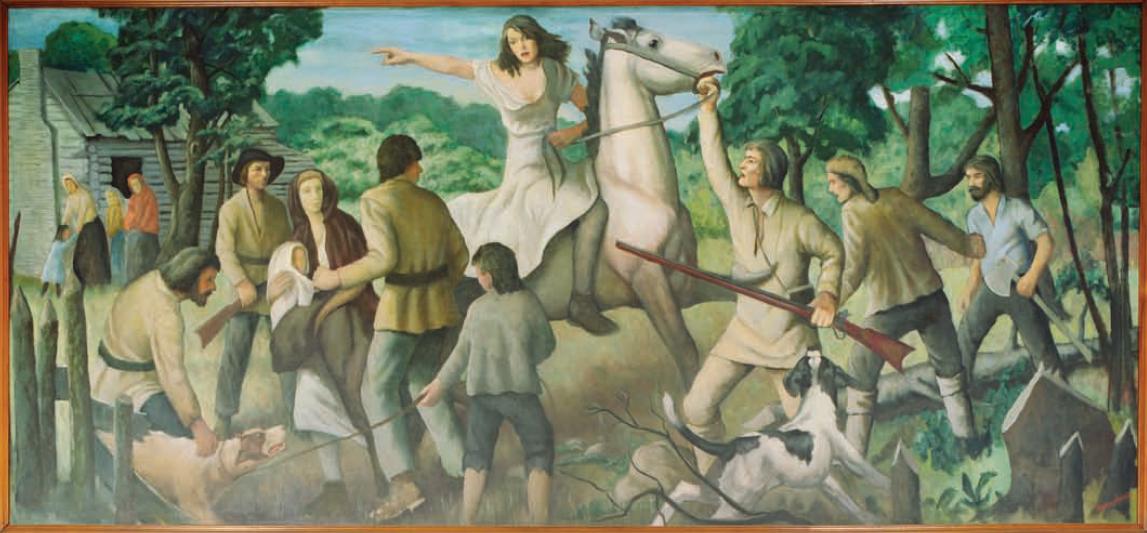
Rachel Silverthorne’s Ride, from a New Deal mural by John W. Beauchampin at the Muncy, Pennsylvania, post office, 1938.
• Barack Obama, historian: “True, Mr. Obama may be unlikely to emulate Theodore Roosevelt and Woodrow Wilson and follow his years in the Oval Office with a stint as president of the American Historical Association. But some scholars see in him a man who used the presidency not just as a bully pulpit but also as something of a historian’s lectern. And he wielded it, they say, to tell a story more strikingly in sync with the bottom-up view of history that dominates academic scholarship than with the biographies of great leaders that rule the best-seller list.” (New York Times)
• The fake news crisis of 1896. (The Atlantic)
• Considering a new New Deal: “Roosevelt had two options: He could focus on economic stimulus and find a way to get money to needy Americans as soon as possible, or prioritize long-term investments, so the end results would make the most of the public dollar and make the biggest difference over time. Roosevelt, an eternal optimist facing down an unprecedented crisis, did both. To prime the pump, Roosevelt created jobs programs such as the Civilian Conservation Corps, which employed unemployed, unmarried American men to develop natural resources on government land. From 1933 to 1942, CCC workers planted 3 billion trees and helped create 800 parks across the country. While the work done through these kinds of programs was mundane—‘sewers and sidewalks,’ according to Sandra Opdycke, a professor at Vassar College and author of The WPA: Creating Jobs and Hope in the Great Depression—in aggregate, such projects reshaped the landscape, and restored the dignity of a paycheck to unemployed Americans.” (Curbed)
• The whole world rendered in miniature: “The tacit philosophy of miniaturists—celebrate all entities, neglect no details—is at once ambitious and laughable. To mimic the known universe as it is, not with imagination but with rigor, allows for an uncommon kind of pleasure: one notices, with some sadness, how rare it is to be purely impressed. No fan or collector of miniatures would describe their enthusiasm as soothing (the heart in fact races), but there is something emotionally restorative about an enjoyment uncomplicated by interpretation.” (Harper’s)
• Wax presidents (and their First Ladies) retire in Gettysburg. (Atlas Obscura)
• Searching for the intersections of truth and fiction in the novels of Jane Austen: “‘Information’ is ‘a tricky word’ in Austen, Deidre Shauna Lynch claims in her new edition of Mansfield Park. In a substantial footnote, Lynch argues that information in Austen’s day meant ‘more than the facts or data we associate with the term’ but also signalled formations, as in educational processes. She suggests that the Bertram sisters’ schooling shows they have been ‘stuffed full of the first, at the expense of the second’. Facts do not an education make.” (The Times Literary Supplement)